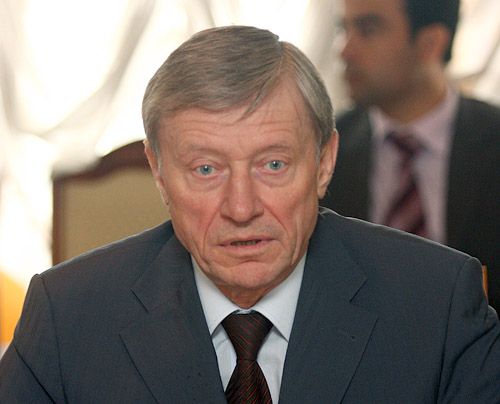DUSHANBE, March 17, 2011, Asia-Plus — Operations carried out in Afghanistan have not yet yielded the anticipated results, the Collective Security treaty Organization Secretary General Nikolai Bordyuzha stated in Dushanbe yesterday at a meeting of the CSTO Working Group on Afghanistan.
According to him, there are many negative trends connected with surge in extremist activity in Afghanistan. “Among them are infiltration of extremist groups into our nations, especially the Central Asian countries, periodic armed skirmishes on the border, first of all on the Tajik-Afghan border as well as ideological influence of Islamic fundamentalists based in Afghanistan on the populations of our countries,” Bordyuzha noted.
A two-day meeting of the CSTO Working Group on Afghanistan is concluding in the Tajik capital today. The meeting participants include representatives from all CSTO member nations, except Uzbekistan.
The Collective Security Treaty Organization now groups Armenia, Belarus, Kazakhstan, Kyrgyzstan, Russia, Tajikistan and Uzbekistan.
The regional security organization was initially formed in 1992 for a five-year period by the members of the CIS Collective Security Treaty (CST) — Armenia, Kazakhstan, Kyrgyzstan, Russia, Tajikistan, and Uzbekistan, which were joined by Azerbaijan, Georgia, and Belarus the following year. A 1994 treaty reaffirmed the desire of all participating states to abstain from the use or threat of force,” and prevented signatories from joining any other military alliances or other groups of states directed against members states. The CST was then extended for another five-year term in April 1999, and was signed by the presidents of Armenia, Belarus, Kazakhstan, Kyrgyzstan, Russia, and Tajikistan. In October 2002, the group was renamed as the CSTO. Uzbekistan joined the Organization in 2006.




